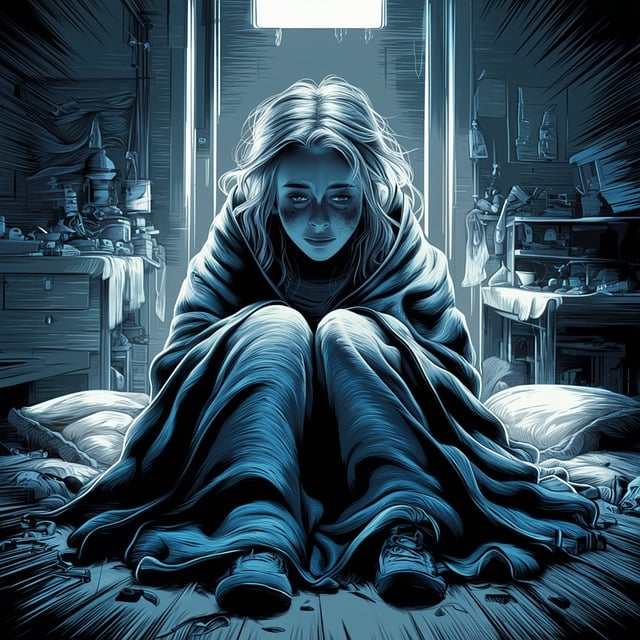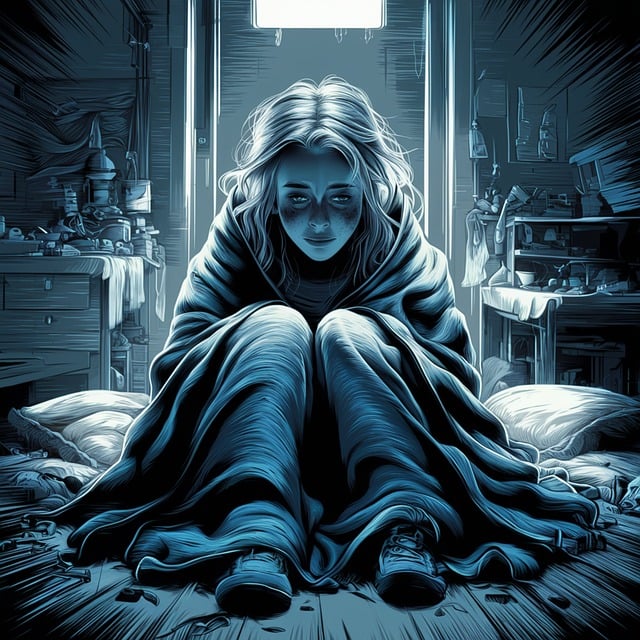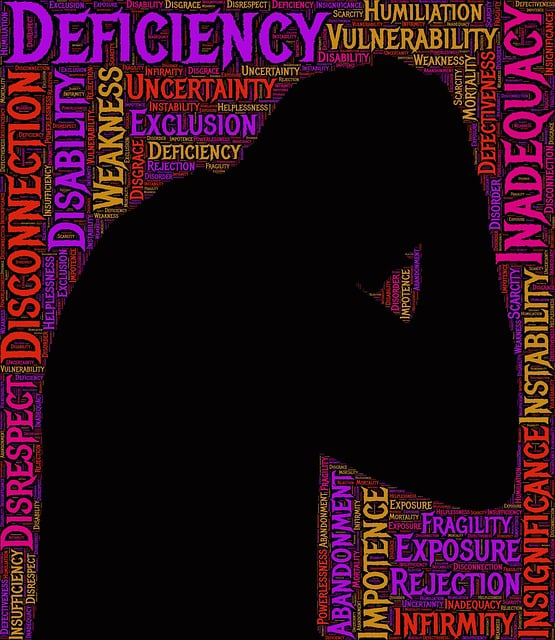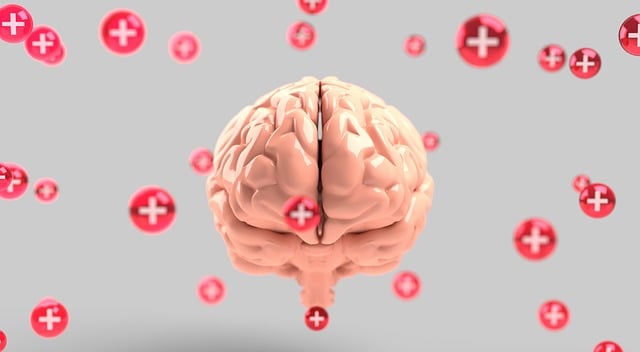Depression, a serious mental health condition marked by persistent low moods, requires early intervention through recognizing diverse signs like sadness, loss of interest, changes in appetite and sleep, fatigue, concentration issues, worthlessness, and suicidal thoughts. Proactive mental wellness approaches, including Castle Rock Panic Disorder and Anxiety Attacks Therapy, mental wellness coaching, and community outreach initiatives, prevent depression escalation. Lifestyle changes, therapy (like CBT), cultural competency training for healthcare providers, support networks, mindfulness meditation, and community resources help in managing and preventing conditions like Castle Rock Panic Disorder, anxiety attacks, and depression.
Depression prevention is a multifaceted approach, especially relevant in today’s fast-paced world. This article explores various strategies to safeguard mental well-being, targeting specific concerns like Castle Rock Panic Disorder and its link to anxiety attacks. We delve into recognizing depression’s signs, emphasizing the power of lifestyle changes, therapy’s role in recurrence prevention, building resilience through coping mechanisms, and the importance of seeking support from both community resources and professional help.
- Understanding Depression: Recognizing the Signs and Symptoms
- Lifestyle Changes for Mental Well-being: A Proactive Approach
- The Role of Therapy in Preventing Recurrence: Castle Rock Panic Disorder Perspective
- Building Resilience: Coping Strategies to Overcome Anxiety Attacks
- Seeking Support: Community Resources and Professional Help for Depression Prevention
Understanding Depression: Recognizing the Signs and Symptoms

Depression is a complex mental health condition that impacts millions worldwide. Recognizing its signs and symptoms is crucial in preventing it from escalating. While everyone experiences occasional low moods, depression persists for weeks or months, affecting one’s daily functioning. It can manifest in various ways, including persistent sadness, loss of interest in activities once enjoyed, changes in appetite and sleep patterns, fatigue, difficulty concentrating, feelings of worthlessness, and recurrent thoughts of death or suicide.
Early intervention is key to managing depression effectively. Individuals experiencing these symptoms should consider seeking professional help, such as Castle Rock Panic Disorder and Anxiety Attacks Therapy, which has proven successful for many. Mental wellness coaching programs and community outreach initiatives focused on stress management can also play a vital role in fostering resilience and promoting overall mental wellness.
Lifestyle Changes for Mental Well-being: A Proactive Approach

Adopting a proactive approach to mental wellness is a powerful strategy in prevention. Lifestyle changes play a pivotal role in combating depression and anxiety, as evidenced by research on Castle Rock Panic Disorder and Anxiety Attacks Therapy. Simple yet effective adjustments can significantly impact an individual’s overall well-being.
Mentally stimulating activities like journaling and exercising not only promote confidence but also provide an outlet for expression. Regular physical activity releases endorphins, known to boost mood, while journaling allows individuals to reflect on their thoughts and emotions, offering a form of mental exercise. These practices, combined with professional guidance from mental health experts, can serve as early warning signs for potential issues, facilitating timely interventions. A risk assessment for professionals is crucial in identifying at-risk clients and ensuring they receive the necessary support.
The Role of Therapy in Preventing Recurrence: Castle Rock Panic Disorder Perspective

Depression prevention strategies often include a multifaceted approach, and one of the most effective tools in combating recurrence is therapy, especially for conditions like Castle Rock Panic Disorder. This form of disorder, characterized by persistent anxiety attacks, can significantly impact an individual’s quality of life. Therapy serves as a powerful tool to break free from this cycle, offering techniques that target the root causes of panic disorders and teach individuals valuable coping skills.
Through specialized therapy, such as cognitive-behavioral therapy (CBT), patients with Castle Rock Panic Disorder can learn resilience-building strategies. CBT focuses on identifying and changing negative thought patterns and behaviors, empowering individuals to manage their symptoms effectively. By addressing underlying fears and anxiety through therapy, individuals gain the tools needed to navigate stressful situations, enhancing overall mental well-being. Additionally, cultural competency training for healthcare providers plays a vital role in ensuring that therapies are tailored to meet the unique needs of diverse populations, fostering better outcomes and preventing recurrence.
Building Resilience: Coping Strategies to Overcome Anxiety Attacks

Depression prevention starts with building resilience, especially when dealing with anxiety attacks like Castle Rock Panic Disorder. Coping strategies are essential tools in managing and overcoming these intense episodes. One effective approach is to develop a strong support network, fostering empathy-building strategies among friends and family. Open communication about feelings and experiences can help reduce the burden of anxiety.
Mindfulness meditation has also proven beneficial, teaching individuals to focus on the present moment without judgment. This practice enhances self-awareness, enabling better management of anxious thoughts. By integrating these coping mechanisms into daily routines, one can significantly improve their ability to navigate and prevent future anxiety attacks, ultimately reducing the risk of depression.
Seeking Support: Community Resources and Professional Help for Depression Prevention

Seeking support is a crucial step in preventing and managing depression. Community resources offer a network of help for individuals facing mental health challenges. Local support groups, community centers, and mental wellness podcast series production can provide a safe space to share experiences, gain insights, and learn coping strategies from peers who understand. These platforms often offer free or low-cost services, making them accessible to a wide range of people in Castle Rock.
For more personalized and professional assistance, seeking therapy is highly recommended. Mental health professionals are equipped with the necessary tools to conduct a risk assessment for individuals experiencing symptoms of depression, anxiety, or both, such as those suffering from Castle Rock Panic Disorder and Anxiety Attacks. Through psychotherapy, medication management, and techniques like mindfulness meditation, professionals can help individuals develop effective strategies to combat depression.
Depression prevention is a multifaceted approach that involves understanding the signs, adopting proactive lifestyle changes, seeking therapy, building resilience, and accessing community support. As seen in the context of Castle Rock Panic Disorder, therapy plays a crucial role in preventing recurrence by addressing underlying issues and providing coping mechanisms for anxiety attacks. By integrating these strategies into daily life, individuals can enhance mental well-being and create a robust defense against depression, ultimately fostering a more balanced and fulfilling existence.














